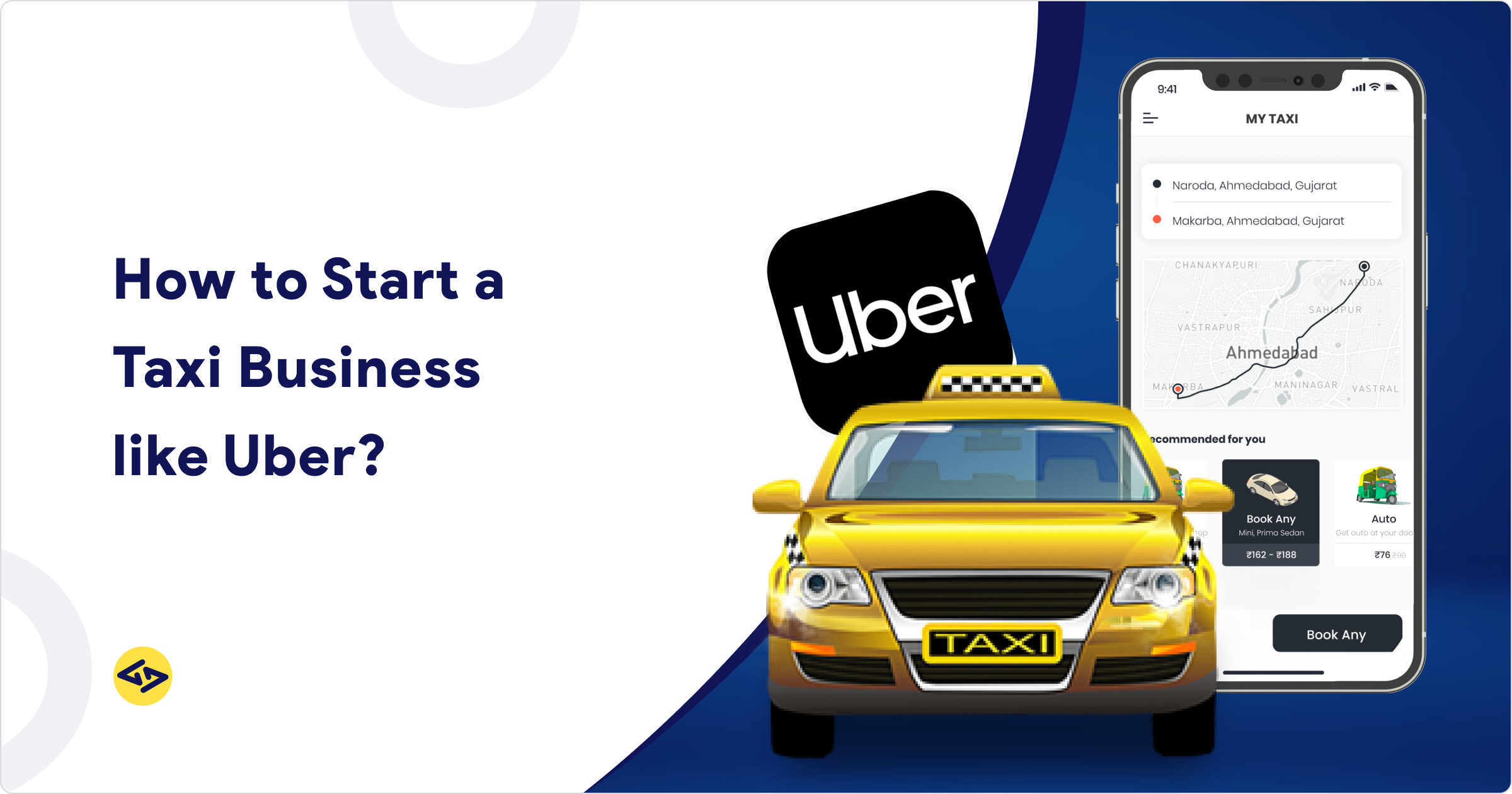Transportation apps have become an essential part of modern life, especially for iPhone users who are constantly moving. Whether commuting to work, planning a weekend getaway, or navigating a new city, the App Store offers various tools to simplify your journey. From ride-hailing services to public transit schedules and electric scooter rentals, there’s an app for nearly every kind of traveler.
This blog will explore the best transportation apps for iPhones in 2025. We’ll break down the types of transportation apps, their features, and why they are valuable for daily commutes, travel planning, and urban mobility.
What are Public Transportation Apps for iPhone?
Public transportation apps are mobile applications that help users navigate city infrastructure using buses, trains, subways, and other mass transit systems. These apps provide route planning, real-time updates, ticket booking, and alerts about delays or service changes. On the iPhone, these apps often integrate with Siri, Apple Maps, and Wallet for a seamless user experience.
These apps are especially helpful for commuters, tourists, and environmentally conscious users who prefer shared transport over driving.
Types of Transportation Apps for iPhones
1. Ride-Sharing and Cabs
Ride-sharing apps have revolutionized the way people travel within cities. These apps connect passengers with drivers using location-based services, offering on-demand transport at your fingertips.
1) Uber:
Uber Technologies, Inc. is a global leader in the mobility and logistics industry, best known for its pioneering ride-hailing services. Headquartered in San Francisco, California, Uber has evolved into a multinational transportation company, offering a suite of services including food delivery (Uber Eats), courier services, and freight transport.
Operating in around 70 countries and over 15,000 cities worldwide, Uber connects riders with drivers through its mobile app, providing fast, reliable, and flexible transportation options. Its platform leverages dynamic pricing based on demand and offers various ride types—from budget-friendly shared rides to premium services.
With over 150 million monthly active users and a network of 6 million active drivers and couriers, Uber is the largest ridesharing company in the world. It is reshaping how people move, eat, and deliver goods worldwide.
Founded In: 2009
Founders: Garrett Camp and Travis Kalanick
Revenue: US$ $ 43.98 billion
Company Size: 31,100
2) Lyft:
Lyft, Inc. is a prominent American transportation company that offers a wide range of mobility services, including ride-hailing, motorized scooters, and bicycle-sharing systems, primarily across the United States and select cities in Canada. Accessible through its easy-to-use mobile app, Lyft connects passengers with nearby drivers for convenient, on-demand travel.
The platform uses a dynamic pricing model, adjusting fares based on local supply and demand during booking. Customers are shown their fare upfront, and Lyft earns a commission from each ride. In addition to individual rides, the app offers shared rides, luxury options, and rental services in some areas.
As of today, Lyft is the second-largest ridesharing company in the United States, following Uber, and it continues to play a key role in shaping the future of urban mobility.
Founded In: 2012
Founders: Logan Green and John Zimmer
Revenue: US$ 5.79 billion
Company Size: 2,934
3) Ola:
Ola Consumer, formerly Ola Cabs, is a leading Indian transportation and mobility platform headquartered in Bangalore. Originally established as a ride-hailing service, the company has since diversified into other verticals, including financial services and cloud kitchens, positioning itself as a broader consumer services brand.
Ola operates in 250+ cities across India, offering a range of transportation options such as hatchbacks, sedans, auto-rickshaws, and bike taxis. Over the years, the company has attracted significant investment from major venture capitalists, including SoftBank, which holds a substantial stake in the business.
In January 2018, Ola made its first international move by entering the Australian market, followed by expansions into New Zealand in September 2018 and the UK in March 2019. However, in April 2024, Ola announced its exit from all international markets to refocus exclusively on India, signaling a strategic pivot toward strengthening its domestic operations.
In line with this shift, Ola underwent a brand transformation in August 2024, officially rebranding itself from Ola Cabs to Ola Consumer, reflecting its evolution beyond just mobility into a full-fledged consumer services ecosystem.
Founded In: 2010
Founders: Bhavish Aggarwal and Ankit Bhati
Revenue: ₹2,799 crore (US$330 million)
Company Size: 3,000
4) Bolt:
Bolt is a leading shared mobility platform based in Estonia. It offers a wide range of services, including ride-hailing, micro mobility rentals (such as e-scooters and bikes), food and grocery delivery via the Bolt Food app, and car-sharing services.
Headquartered in Tallinn, Bolt has rapidly expanded its global footprint, now operating in over 600 cities across more than 50 countries, including regions in Europe, Africa, Western Asia, and Latin America.
Known for its focus on affordability, safety, and sustainability, Bolt is reshaping urban transportation by providing millions of users worldwide with smart, convenient, and eco-friendly mobility solutions.
Founded In: 2013
Founders: Markus Villig
Revenue: €1.7 billion
Company Size: 1001-5000
2. Public Transit Apps
Public transit apps help users navigate city-wide transport systems like buses, trains, and metros. These apps provide live updates, transit maps, and service disruptions to ensure smooth commuting.
1) Moovit:
Moovit is an Israel-based Mobility as a Service (MaaS) provider and journey planner app that helps users navigate public transportation efficiently. Acquired by Intel in 2020 and later becoming part of Mobileye until its IPO in 2022, Moovit combines crowdsourced and official public transit data to offer accurate and real-time route planning for commuters worldwide.
In addition to serving everyday users, Moovit provides transit data APIs to cities, transit agencies, and companies, making it a valuable tool for urban planning and transit operations. Its unique integration of crowdsourced information allows it to deliver transit updates even in regions where official data is unavailable, making public transport more accessible and reliable.
Founded In: 2012
Founders: Nir Erez, Roy Bick, and Yaron Evron
Revenue: $44.1 million
Company Size: + 280
2) Transit:
Transit is a widely used mobile app that delivers real-time public transit data, helping users navigate city transportation systems easily and confidently. Designed for commuters, the app provides live departure times, step-by-step directions, service alerts, and multi-modal trip planning.
Transit operates in over 871 metropolitan areas across 25 countries worldwide, making it a go-to solution for reliable and up-to-date transit information. Whether you’re catching a bus, train, or rideshare, Transit helps simplify the urban commute and keeps you moving efficiently.
Founded In: 2012
Founders: Sam Vermette and Guillaume Campagna
Revenue: $176.5 million
Company Size: + 850
3) Citymapper:
Citymapper is a smart urban mobility app designed to help users easily navigate complex city transit systems. Combining data from buses, trains, subways, ferries, bikes, scooters, and even walking routes, Citymapper provides real-time route planning, live departure times, and step-by-step navigation across multiple modes of transport.
Available in major cities worldwide, Citymapper is known for its user-friendly interface, accurate transit updates, and innovative features like smart commute suggestions and disruption alerts, making it a favorite among daily commuters and travelers alike.
Founded In: 2011
Founders: Azmat Yusuf
Revenue: $10 million to $50 million
Company Size: 100
3. Micromobility Apps
Micromobility apps provide access to shared bikes, e-bikes, and scooters, perfect for short-distance urban travel. They help reduce traffic congestion and carbon footprint.
1) Lime:
Lime, operated by Neutron Holdings, Inc. (formerly LimeBike), is a leading American transportation company headquartered in San Francisco, California. It specializes in micro mobility solutions, offering a fleet of electric scooters, e-bikes, and electric mopeds in more than 200 cities in nearly 30 countries worldwide.
Lime’s dockless system allows users to easily locate and unlock nearby vehicles using its smartphone app, which leverages GPS technology to display available rides in real time. With a strong focus on sustainability and convenience, Lime is reshaping how people travel short distances in urban areas, providing a flexible and eco-friendly alternative to traditional transport.
Founded In: 2017
Founders: Brad Bao and Toby Sun
Revenue: $1.71B
Company Size: 386
2) Bird:
Bird is a prominent micromobility app developed by Bird Global, Inc., headquartered in Miami, Florida. Launched in September 2017, Bird provides electric scooters for short-term rental, enabling convenient, eco-friendly urban transportation for short-distance trips.
Operating in over 400 cities worldwide, Bird allows users to locate, unlock, and ride scooters using its smartphone app, offering a seamless way to navigate city streets. In April 2024, Bird was acquired by Third Lane Mobility in a strategic move to avoid bankruptcy, marking a new chapter in its mission to modernize urban mobility.
Founded In: 2017
Founders: Travis VanderZanden
Revenue: US$ 205 million
Company Size: + 300
3) Spin:
Spin is a dynamic micromobility app that offers electric bicycle-sharing and electric scooter-sharing services, helping users travel short distances in an eco-friendly and efficient way. Founded as a startup in 2017 and based in San Francisco, Spin originally launched as a dockless bicycle-sharing system managed through a mobile app that allows users to locate, reserve, and unlock vehicles conveniently.
Focusing on sustainable urban transportation, Spin has expanded its reach to multiple cities, providing flexible mobility options for commuters and city dwellers alike.
Founded In: 2016
Founders: Euwyn Poon, Derrick Ko and Zaizhuang Cheng
Revenue: $1.55M
Company Size: +300
4. Navigation & Mapping Apps
These apps offer driving, walking, cycling, and public transit directions. They often integrate with voice assistants and provide real-time traffic data.
1) Google Maps:
Google Maps is a widely used web-based and mobile mapping application developed by Google. It offers detailed navigation, real-time traffic updates, public transit information, and location-based services worldwide. Launched in 2005, it has evolved into one of the most comprehensive digital mapping platforms, helping users easily explore and navigate familiar and unfamiliar places.
From turn-by-turn GPS directions to discovering local businesses, street views, and estimated travel times, Google Maps is an essential tool for millions of users worldwide, whether they’re driving, walking, biking, or using public transportation.
Founded In: 2005
Founders: Lars and Jens Eilstrup Rasmussen, Noel Gordon, and Stephen Ma
2) Waze:
Waze is a community-driven GPS navigation app that provides real-time traffic updates, route planning, and turn-by-turn navigation, helping drivers avoid congestion, road hazards, and delays. Originally developed in Israel and acquired by Google in 2013, Waze stands out for its crowdsourced approach, gathering live data from millions of users to deliver the fastest and most efficient routes.
With features like accident alerts, police sightings, speed camera warnings, and ETA sharing, Waze empowers drivers with up-to-the-minute insights, making everyday commuting smarter and more interactive.
Founded In: 2006
Founders: Uri Levine, Ehud Shabtai, and Amir Shinar
Revenue: $73.4M
Company Size: 400+
5. Railway & Train Booking Apps
Perfect for intercity travel, these apps allow users to check schedules, book seats, and track trains.
1) Amtrak:
Amtrak is the official mobile app of the National Railroad Passenger Corporation—commonly known as Amtrak—which provides intercity passenger rail services across the United States. The app offers a seamless way for travelers to search schedules, book tickets, check train status, and access e-tickets directly from their smartphones.
Serving over 500 destinations in 46 U.S. states and parts of Canada, the Amtrak app simplifies rail travel by offering convenient, paperless boarding, real-time updates, and rewards integration for Amtrak Guest Rewards members.
Founded In: 1971
Revenue: $3.57 billion
Company Size: 10,001+
2) Trainline:
Trainline (formerly Thetrainline.com) is a British digital rail and coach technology platform that enables users to search, compare, and book train and bus tickets across the UK and mainland Europe. Through its website and mobile app—available on iOS and Android—Trainline offers access to live train times, railway station information, railcards, and ticket bookings for over 270 rail and coach companies.
Headquartered in London, Trainline is listed on the London Stock Exchange and is part of the FTSE 250 Index, reflecting its position as a major player in European travel tech. The platform is designed to make rail and coach travel easier, cheaper, and more convenient for millions of users yearly.
Founded In: 1997
Founders: Jean-Daniel Guyot, Martin Ottenwaelter, and Valentin Surrel
Revenue: £396.7 million
Company Size: 1,001-5,000
6. Flight & Airport Transfer Apps
These apps are useful for air travelers who want to track flights, get fare alerts, and book airport transfers.
1) Flighty:
Flighty is a powerful flight tracking application available on iOS and macOS, designed to keep travelers fully informed from gate to gate. It offers live flight tracking, delay forecasts, real-time notifications, and even lifetime flying statistics, helping users confidently manage their air travel. One of its standout features is the ability to share flight details with friends and family, making coordination effortless.
Flighty has received generally favorable reviews from users and tech critics alike, with praise from major news outlets for its sleek design, reliable alerts, and premium travel experience. Whether you’re a frequent flyer or planning your next vacation, Flighty is your go-to co-pilot in the skies.
Founded In: 2019
Founders: Ryan Jones and two other individuals
Revenue: $500,000
Company Size: 50+
2) Skyscanner:
Skyscanner is a globally popular travel search engine and booking app that helps users find the best deals on flights, hotels, and car rentals. Founded in 2003 and headquartered in Edinburgh, Scotland, Skyscanner operates in over 30 languages and is used by millions of travelers worldwide.
Available on iOS and Android, the app compares prices from airlines, hotel chains, and online travel agencies to deliver real-time, transparent pricing. With its intuitive interface and flexible search features—like “Everywhere” for destination discovery—Skyscanner is a go-to tool for planning affordable and customized trips.
Founded In: 2003
Founders: Gareth Williams, Barry Smith, Bonamy Grimes
Revenue: £261 million
Company Size: 1,200+
Conclusion
Transportation apps for iPhones offer a broad spectrum of mobility solutions, from quick city commutes to cross-country travel. Whether you’re looking to catch a bus, hail a cab, rent a scooter, or book a flight, there’s an app designed to meet your needs. As cities grow smarter and users demand convenience, these apps evolve with features like AI-powered suggestions, real-time updates, and seamless payment integration.
By choosing the right mix of apps from each category, iPhone users can enjoy a smoother, faster, and more efficient travel experience—anytime, anywhere.
Find the Best Transportation Apps for iPhones – Travel Smarter!




